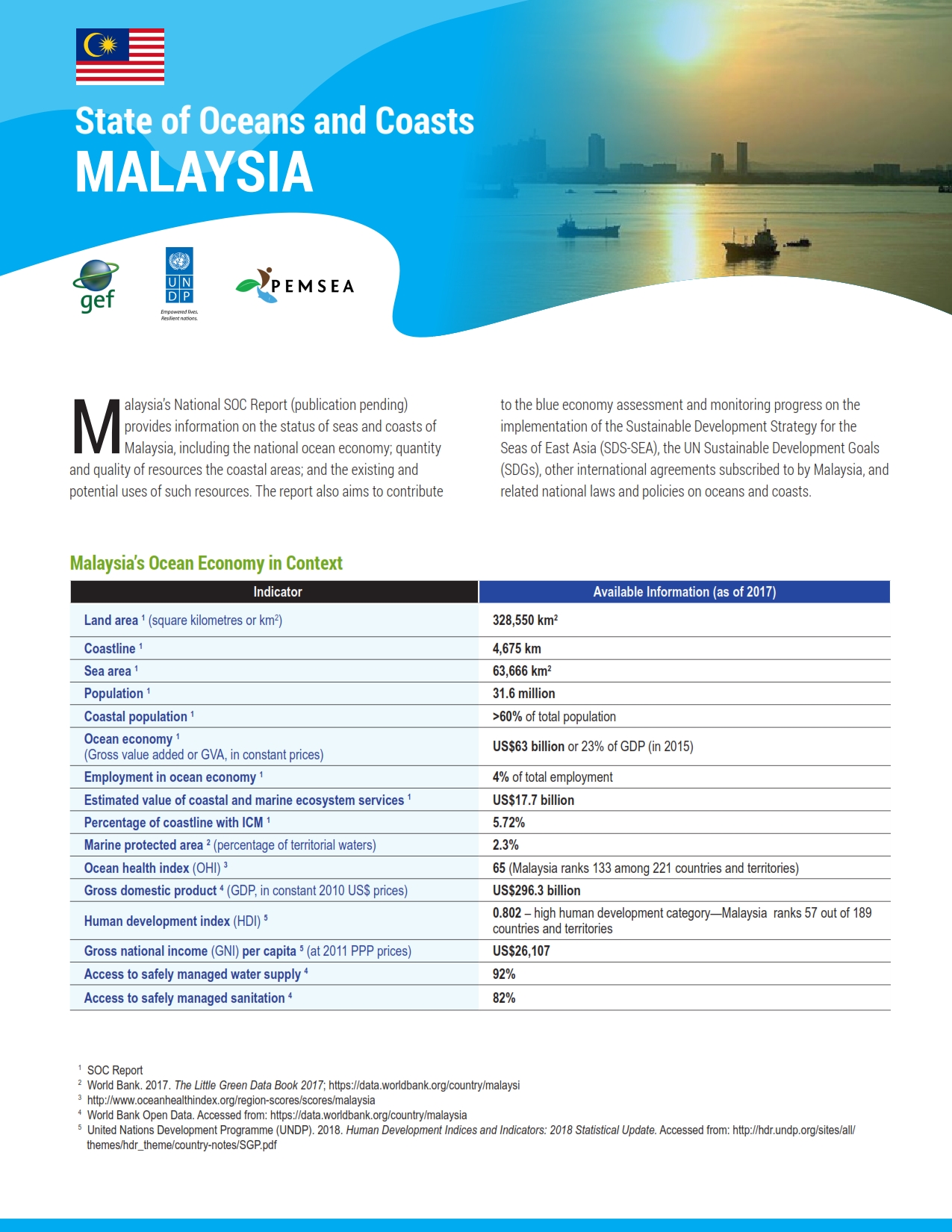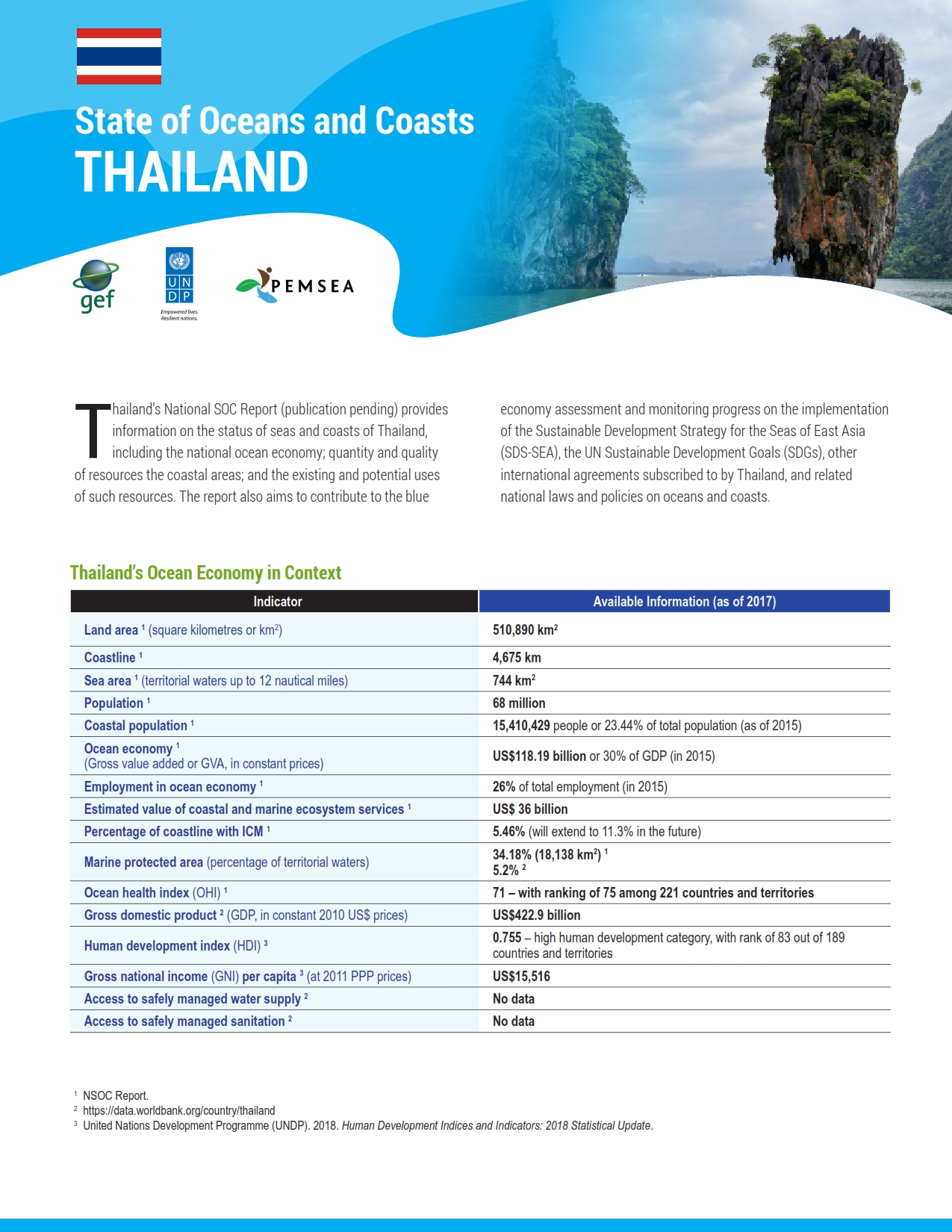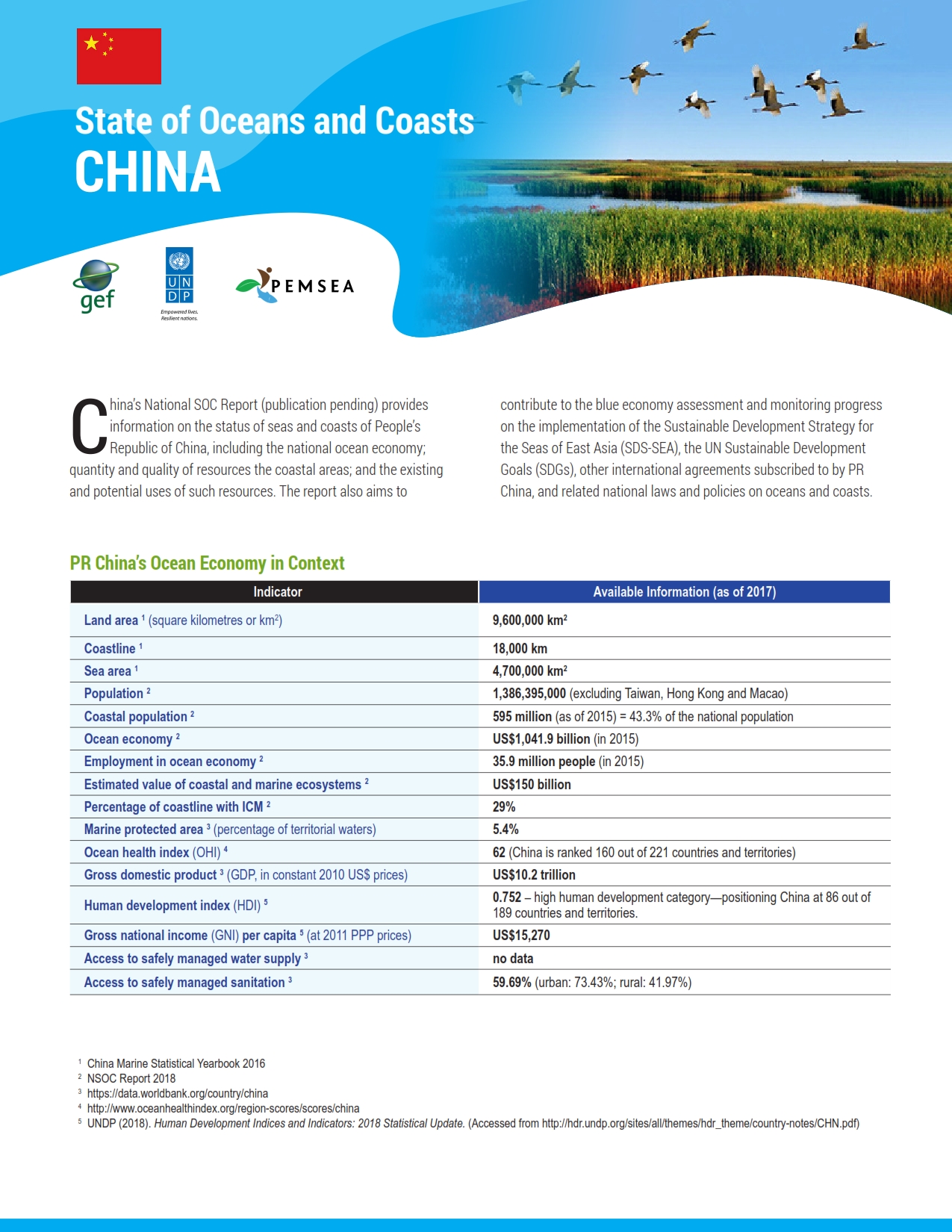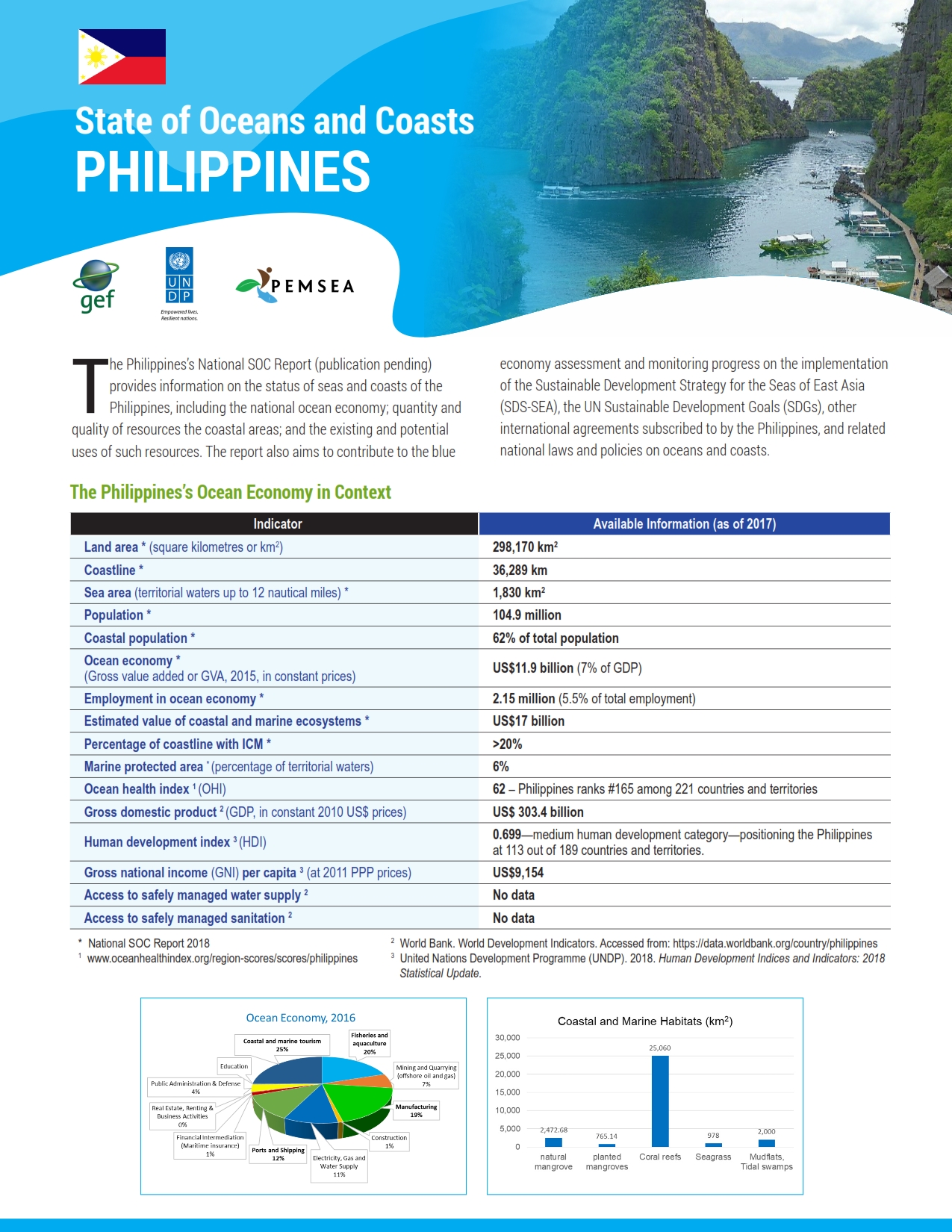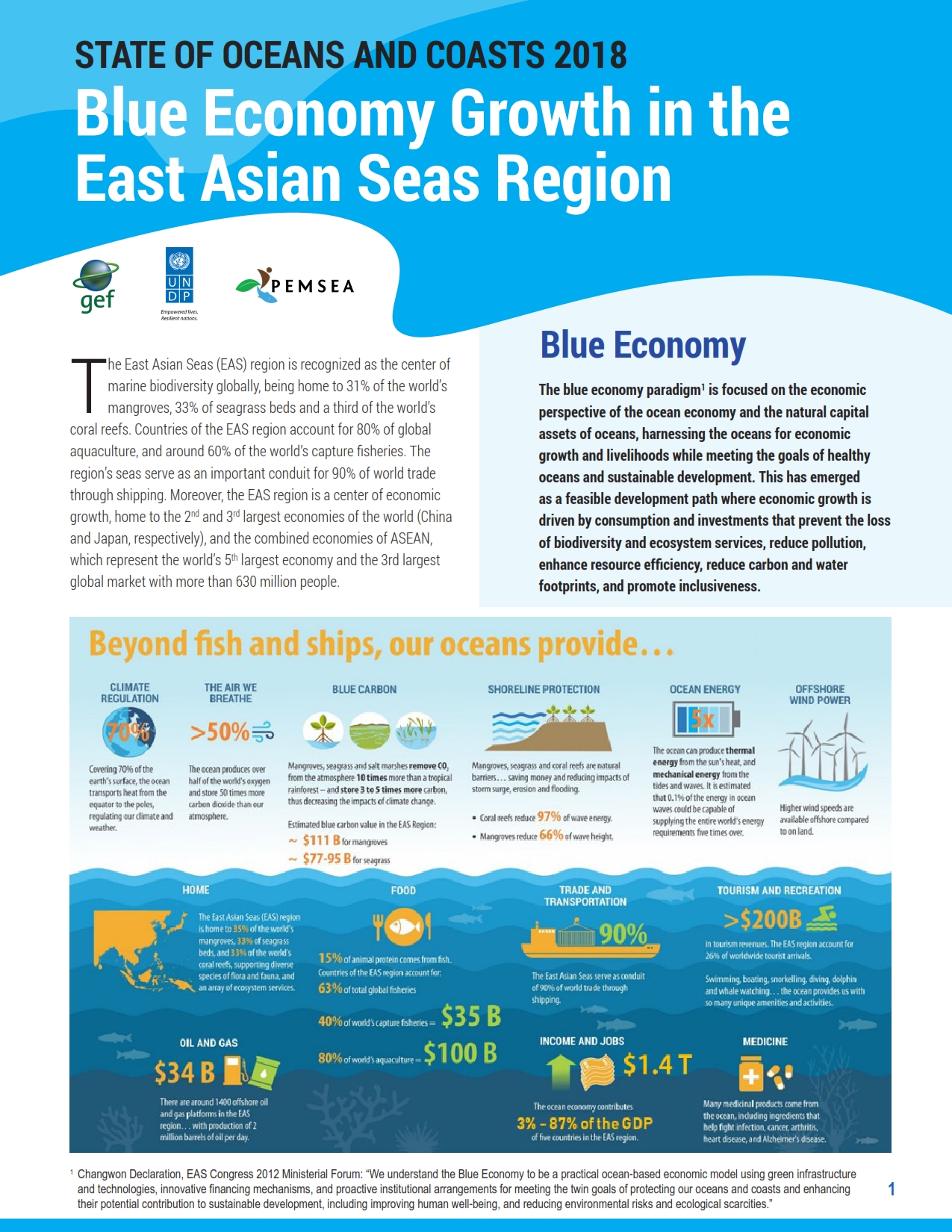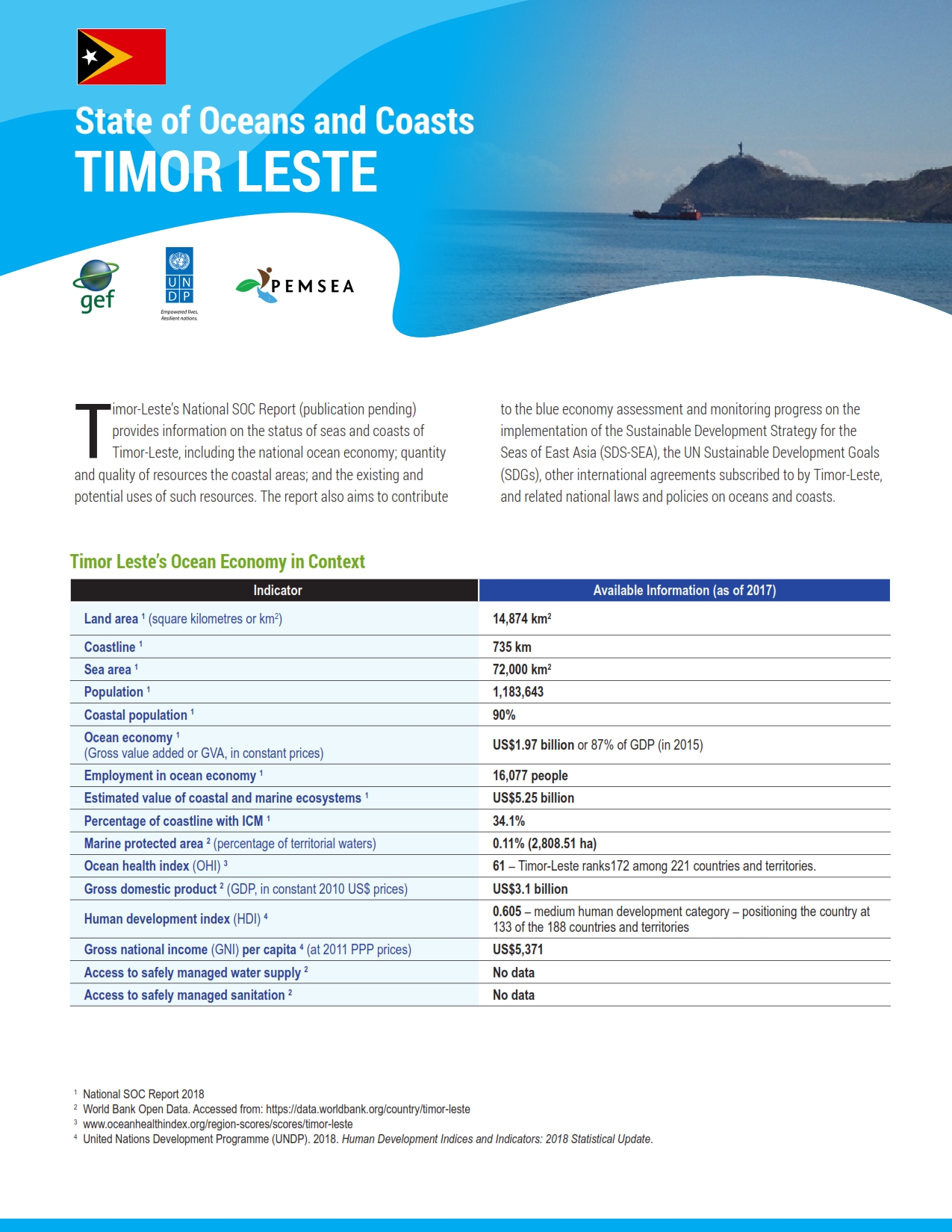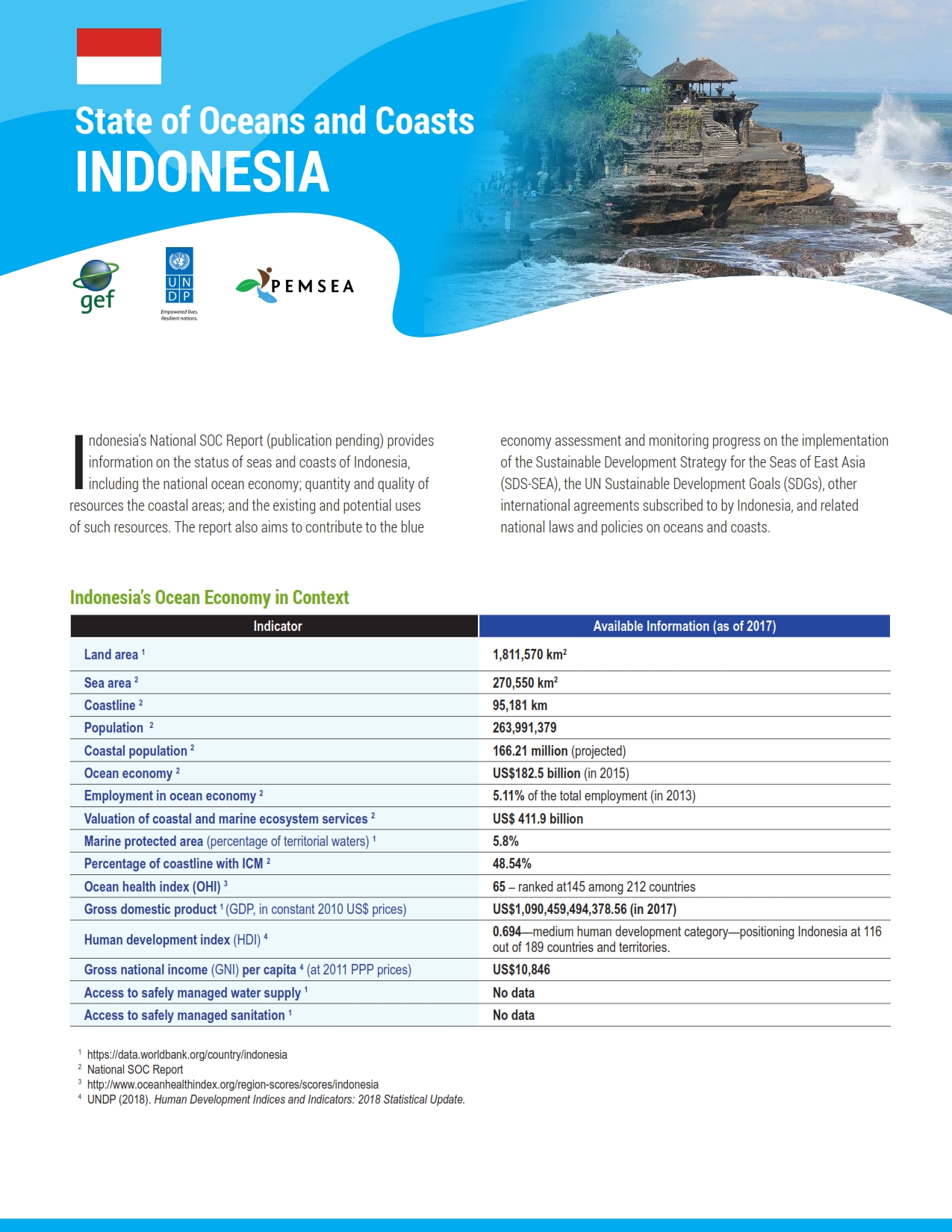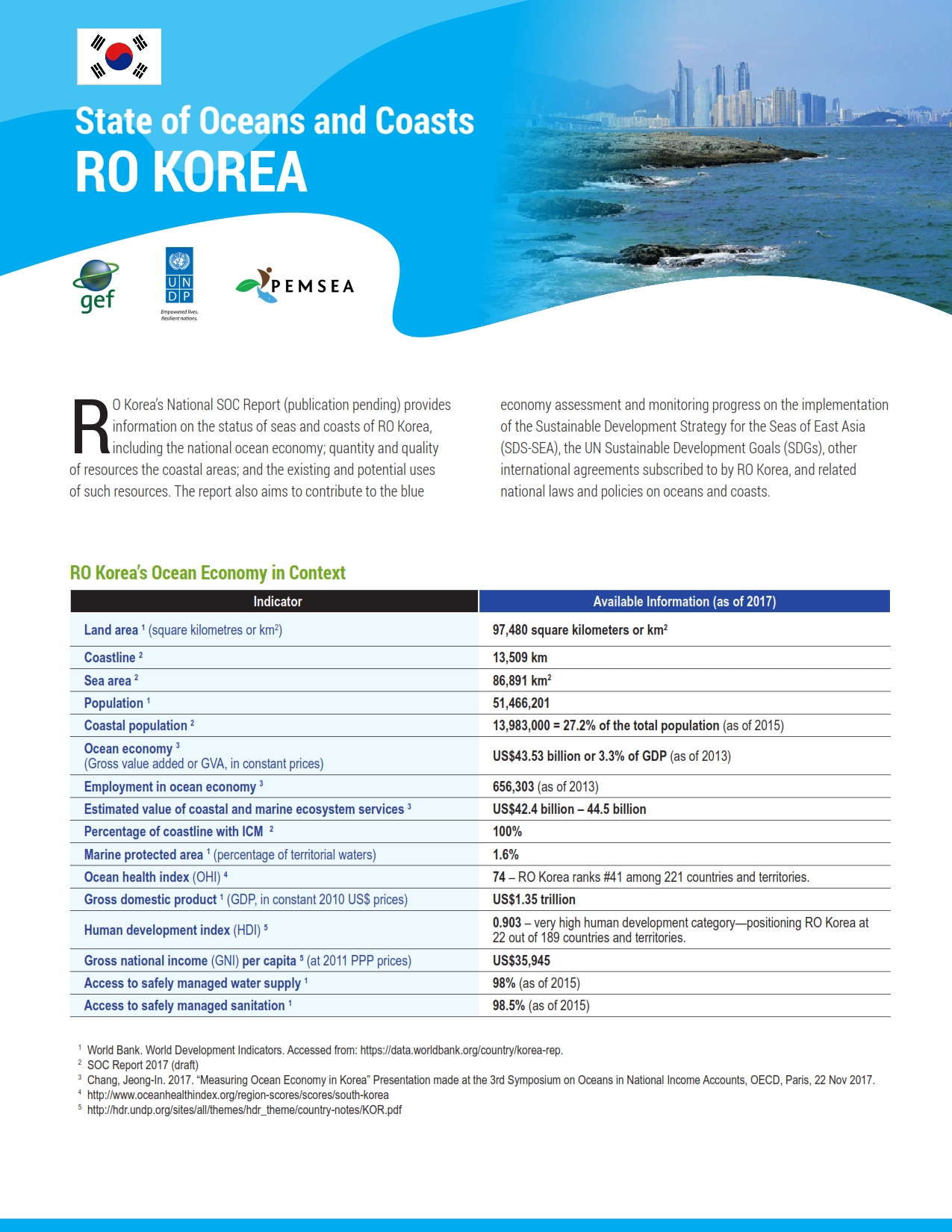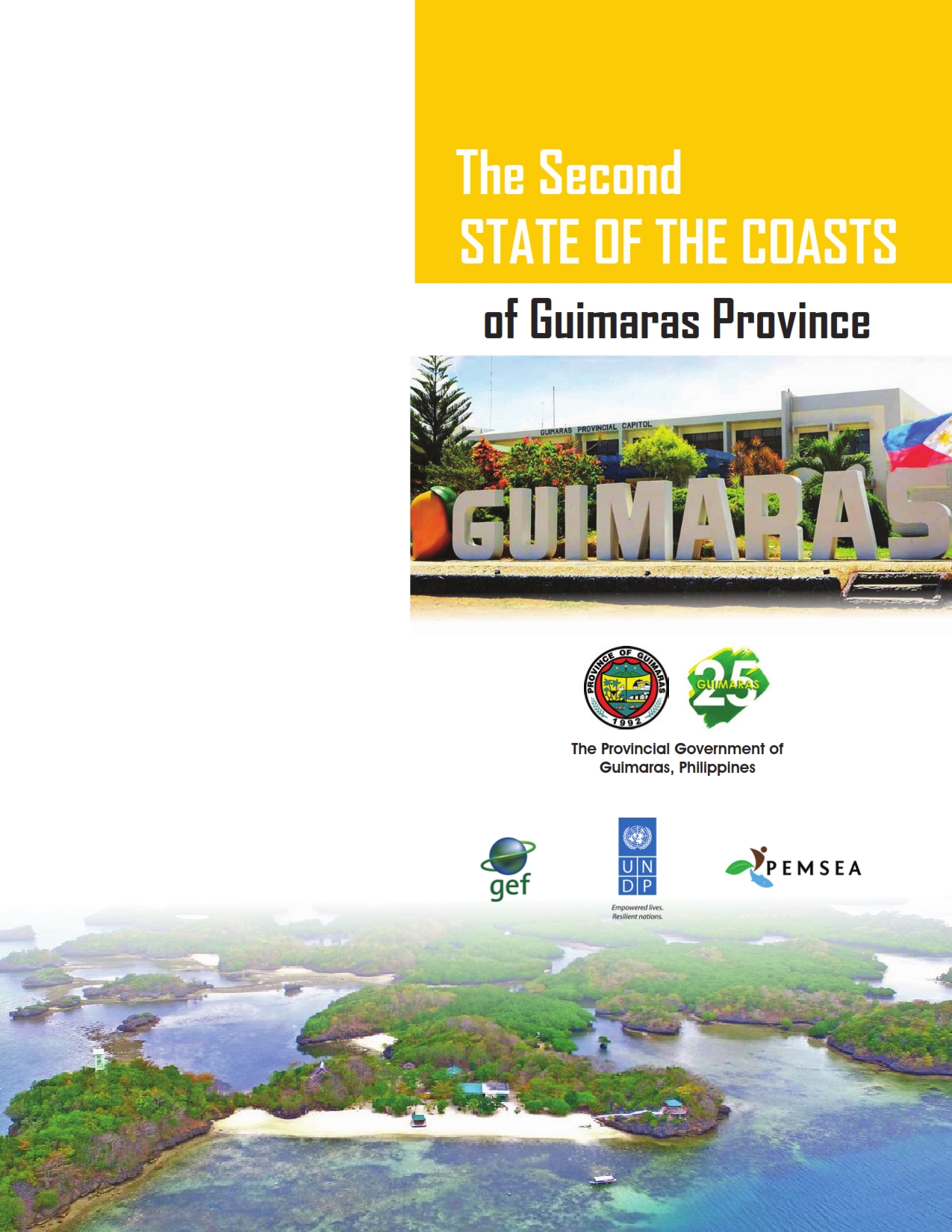
Breadcrumb
State of Oceans and Coasts of Malaysia
Malaysia’s National SOC Report provides information on the status of seas and coasts of Malaysia, including the national ocean economy; quantity and quality of resources the coastal areas; and the existing and potential uses of such resources. The report also aims to contribute to the blue economy assessment and monitoring progress on the implementation of the Sustainable Development Strategy for the Seas of East Asia (SDS-SEA), the UN Sustainable Development Goals (SDGs), other international agreements subscribed to by Malaysia, and related national laws and policies on oceans and coasts.
State of Oceans and Coasts of Thailand
Thailand’s National SOC Report provides information on the status of seas and coasts of Singapore, including the national ocean economy; quantity and quality of resources the coastal areas; and the existing and potential uses of such resources. The report also aims to contribute to the blue economy assessment and monitoring progress on the implementation of the Sustainable Development Strategy for the Seas of East Asia (SDS-SEA), the UN Sustainable Development Goals (SDGs), other international agreements subscribed to by Thailand, and related national laws and policies on oceans and coasts.
State of Oceans and Coasts of China
China’s National SOC Report provides information on the status of seas and coasts of People’s Republic of China, including the national ocean economy; quantity and quality of resources the coastal areas; and the existing and potential uses of such resources. The report also aims to contribute to the blue economy assessment and monitoring progress on the implementation of the Sustainable Development Strategy for the Seas of East Asia (SDS-SEA), the UN Sustainable Development Goals (SDGs), other international agreements subscribed to by PR China, and related national laws and policies on oceans and coasts.
State of Oceans and Coasts of the Philippines
The Philippines’s National SOC Report provides information on the status of seas and coasts of the Philippines, including the national ocean economy; quantity and quality of resources the coastal areas; and the existing and potential uses of such resources. The report also aims to contribute to the blue economy assessment and monitoring progress on the implementation of the Sustainable Development Strategy for the Seas of East Asia (SDS-SEA), the UN Sustainable Development Goals (SDGs), other international agreements subscribed to by the Philippines, and related national laws and policies on oceans and coasts.
State of Oceans and Coasts 2018 : Blue Economy Growth in the East Asian Region
The East Asian Seas (EAS) region is recognized as the center of marine biodiversity globally, being home to 31% of the world’s mangroves, 33% of seagrass beds and a third of the world’s coral reefs. Countries of the EAS region account for 80% of global aquaculture, and around 60% of the world’s capture fisheries. The region’s seas serve as an important conduit for 90% of world trade through shipping. Moreover, the EAS region is a center of economic growth, home to the 2nd and 3rd largest economies of the world (China and Japan, respectively), and the combined economies of ASEAN, which represent the world’s 5th largest economy and the 3rd largest global market with more than 630 million people.
State of Ocean and Coasts (SOC) Reports of Cambodia, China, Indonesia, Japan, Malaysia, Philippines, RO Korea, Singapore, Thailand, Timor-Leste, and Viet Nam capture initial estimates of their ocean economies – measured as the sum of the economic activities of
ocean-based and ocean-related industries, together with the natural assets, goods and services of marine ecosystems upon which these industries depend and people rely on for food, income, livelihood, recreation, shoreline protection and climate regulation, among others.State of Oceans and Coasts of Timor-Leste
Timor-Leste’s National SOC Report provides information on the status of seas and coasts of Timor-Leste, including the national ocean economy; quantity and quality of resources the coastal areas; and the existing and potential uses of such resources. The report also aims to contribute to the blue economy assessment and monitoring progress on the implementation of the Sustainable Development Strategy for the Seas of East Asia (SDS-SEA), the UN Sustainable Development Goals (SDGs), other international agreements subscribed to by Timor-Leste, and related national laws and policies on oceans and coasts.
State of Oceans and Coasts of Indonesia
Indonesia’s National SOC Report provides information on the status of seas and coasts of Indonesia, including the national ocean economy; quantity and quality of resources the coastal areas; and the existing and potential uses of such resources. The report also aims to contribute to the blue economy assessment and monitoring progress on the implementation of the Sustainable Development Strategy for the Seas of East Asia (SDS-SEA), the UN Sustainable Development Goals (SDGs), other international agreements subscribed to by Indonesia, and related national laws and policies on oceans and coasts.
State of Oceans and Coasts of RO Korea
RO Korea’s National SOC Report provides information on the status of seas and coasts of RO Korea, including the national ocean economy; quantity and quality of resources the coastal areas; and the existing and potential uses of such resources. The report also aims to contribute to the blue economy assessment and monitoring progress on the implementation of the Sustainable Development Strategy for the Seas of East Asia (SDS-SEA), the UN Sustainable Development Goals (SDGs), other international agreements subscribed to by RO Korea, and related national laws and policies on oceans and coasts.
Second State of the Coasts of Guimaras Province
The Second State of the Coasts of Guimaras Province covers the period of 2010-2017.This report is the output of the collaborative effort of the following stakeholders: national government agencies, provincial and municipal governments, non-government organizations, academe and civil society organizations. This report was able to capture evidences that showed significant improvements in environmental governance and management practices of the province. Of the 14 indicators of governance, 12 showed positive progress, i.e., shift from baseline status to improving status and 2 indicators showed discernible changes but are not quite eligible to be shifted to improving status. For the 21 indicators on aspects of sustainable development, 12 indicators showed positive progress; improvements in 4 indicators are discernible but also are not quite eligible to be shifted to improving status while 5 indicators need further improvement. None of the 35 indicators showed deteriorating status.
